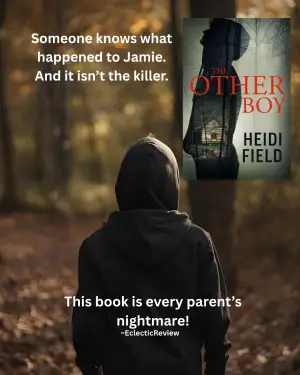As an ardent fan of mystery novels, particularly those woven by Agatha Christie, I couldn’t resist picking up Miss Marple: The Complete Story Collection. The promise of delving into all of Christie’s short stories featuring her iconic detective, Miss Marple, intrigued me. I’d often heard about her ability to unearth truth and justice amid the quaintness of St. Mary Mead, and I was eager to explore her world. Short mysteries felt like the perfect antidote to a busy week, and being able to dive into a single story at a time was truly appealing.
From the outset, the collection lives up to its description as an “unparalleled compendium of murder, mayhem, mystery, and detection.” In her signature style, Christie blends charm with suspense, and the stories beautifully reflect the quirks of village life paired with darker undertones. I found myself admiring how Miss Marple, as "the typical old maid of fiction," sees beyond mere appearances to uncover deeper truths about human nature. It’s a riveting exploration of character and morality that kept me engaged throughout the various narratives.
One element of the collection that I’ve come to appreciate, as echoed in reviews by others, was the delightful brevity of the short stories. Wendy Cook, for instance, pointed out how she found them perhaps even more eloquent than Christie’s novels, and I wholeheartedly agree. The art of short fiction is captured splendidly here. Each story is tightly woven yet rich, showcasing Christie’s skills with phrases, which is indeed instructive for aspiring writers. There’s something particularly satisfying about being able to savor a complete narrative, often with a twist, in one sitting.
However, it’s also worth mentioning a few drawbacks that have appeared across various reviews. One consistent observation was that a number of stories don’t present high stakes. Adam Graham noted that in most of the tales, the perpetrators are already known or caught, which diminishes the intensity of anticipation. As much as I enjoyed the clever dialogues and unraveling of human motives, I occasionally felt the pacing could lag when the tension fizzled.
Another minor point that some readers, including Drebbles, emphasized was the recurring themes across stories. While I can see how this could lead one to predict certain outcomes, I found comfort in recognizing these patterns. It gave me a sense of familiarity with Christie’s storytelling style, so for me, it wasn’t a negative but something that enriched my reading experience.
Among the collection, a few stories stood out to me. For example, “The Case of the Perfect Maid” struck a chord with its intricate puzzle revolving around trust and deception. I found myself deeply invested, trying to piece together clues alongside Miss Marple. The character’s wits and insights never ceased to amaze me, and I could see why so many readers, including Adam Graham, found her endearing and relatable.
Moreover, I appreciated the book’s ability to serve as a gateway for both newcomers to Christie’s world and seasoned readers. It’s an excellent introduction for those yet to meet Miss Marple, as Wendy pointed out, and it’s a delightful addition to any mystery enthusiast’s library.
In conclusion, while not every story in Miss Marple: The Complete Story Collection holds the suspense of a nail-biting thriller, the richness of character, humor, and Christie’s insightful explorations into human nature make it a worthwhile read. I found it consistently enjoyable, with the collection being perfect for brief escapism or extended reading sessions. If you’re a lifelong Christie lover, or even just dipping your toes into classic mystery fiction, this book is certainly worth your time. I wholeheartedly recommend it, and I look forward to revisiting the stories that captured my imagination once more.








